

As urban explorers and photographers, the James A. Farley Post Office has long fascinated us. We previously took you on a photographic exploration of its abandoned interior, and we also discussed the city’s $3 billion plan to convert the space into the Daniel Patrick Moynihan Train Hall, which will eventually house both the Amtrak and the Long Island Rail Road.
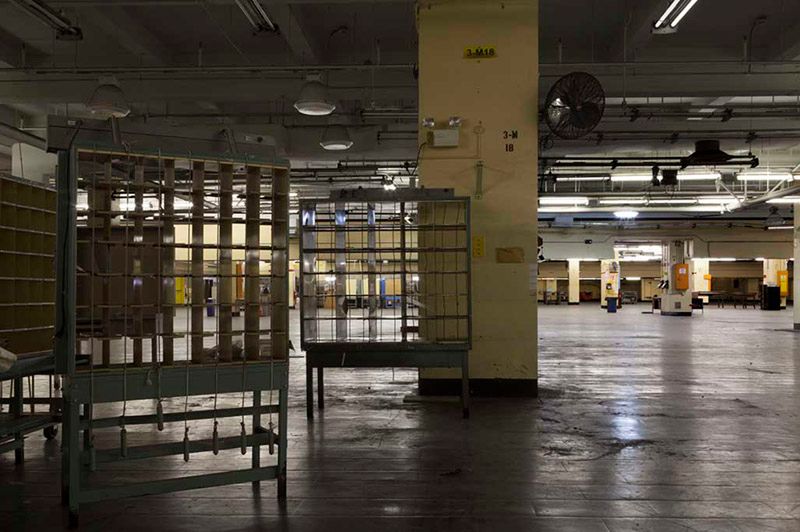
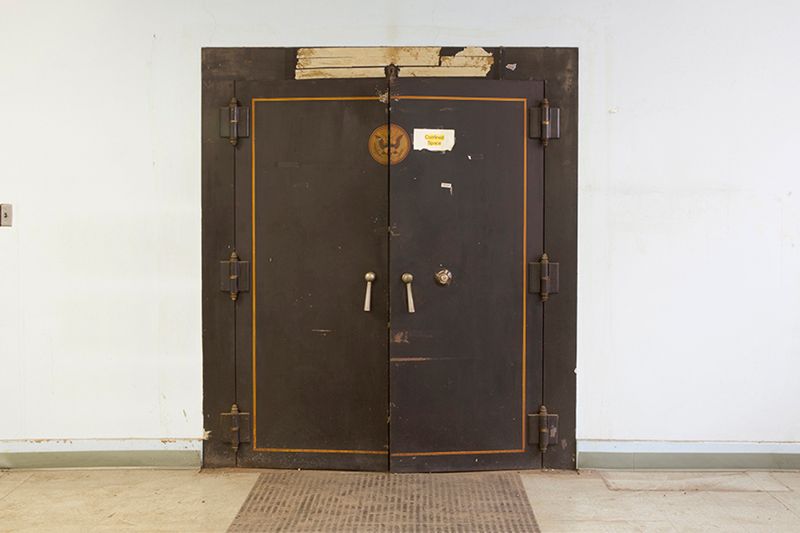
In the next saga of our ongoing investigation, photographer and Cooper Union Professor of Art Margaret Morton is bringing us back inside with these photos from her exhibit, Inside the Farley.
Morton has roamed the labyrinth-like complex of the Farley since 2012. Deemed “the most elaborate post office in America” by The New York Times, the McKim, Mead and White-designed building (initially dubbed The General Post Office) was completed in 1914, and expanded in 1934; it stretches over an entire block on Eighth Avenue, between 31st and 32nd streets.
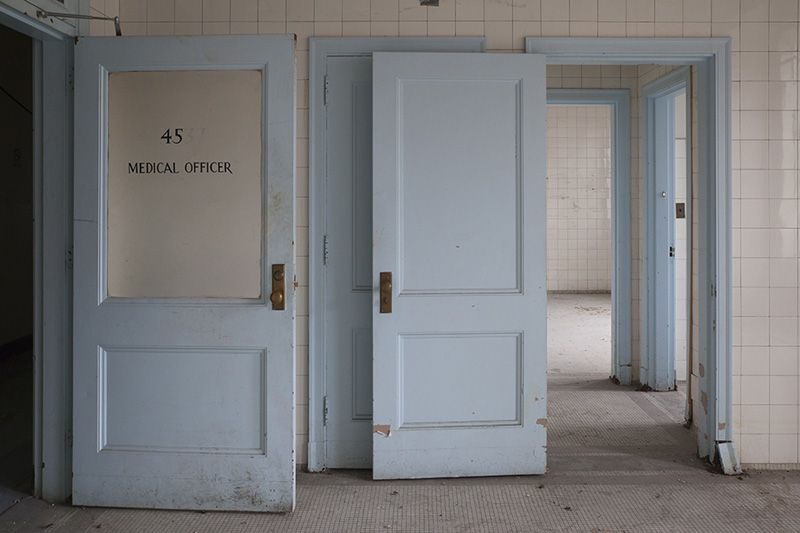
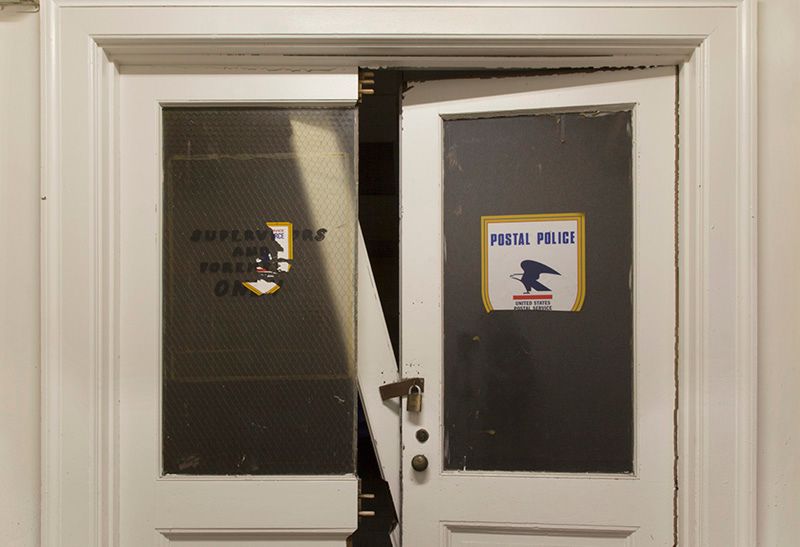
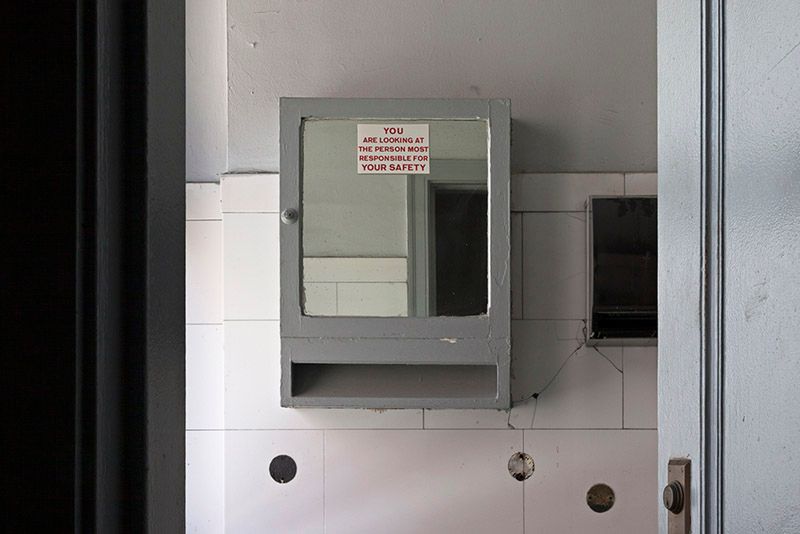
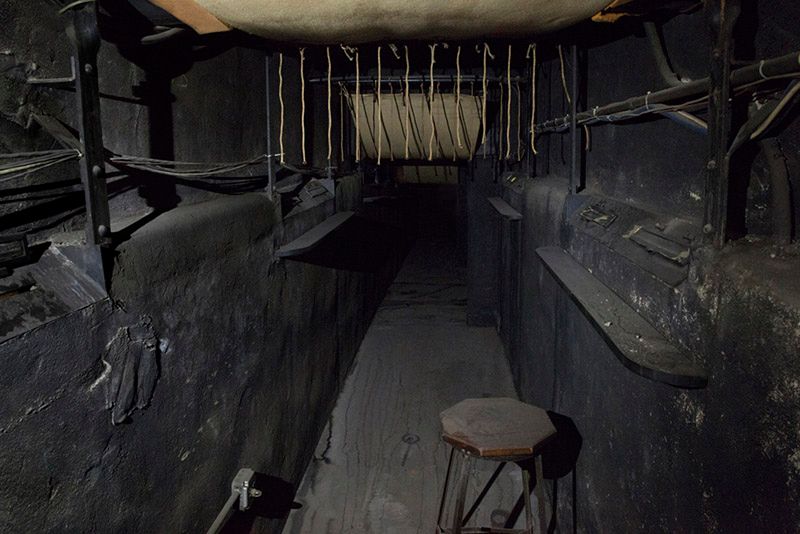
“Much of the interior had fallen into disrepair,” Morton recounts about her experience roaming the Farley’s corridors. “Water damage from rain and leaking pipes was evident throughout the building, particularly on the upper floors. Ceilings had crumbled onto faded carpets, plaster walls had dissolved into the texture of ancient ruins, and mold stains left organic shapes that traveled down walls and onto windowsills.”
“Artifacts were everywhere, from portrait paintings leaning against a wall in the elegant Postmaster’s Suite to a child’s hand-drawn holiday card left taped inside a shuttered service window. Sculptural fragments that had once rimmed the building’s roofline were stacked on wheeled carts in a dark recess beneath the grand exterior staircase that ascends from the street to the post office lobby,” said Morton.
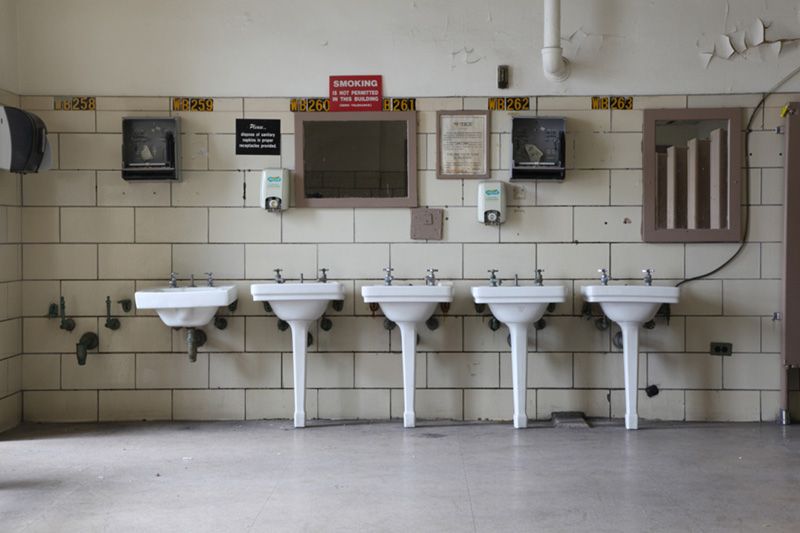
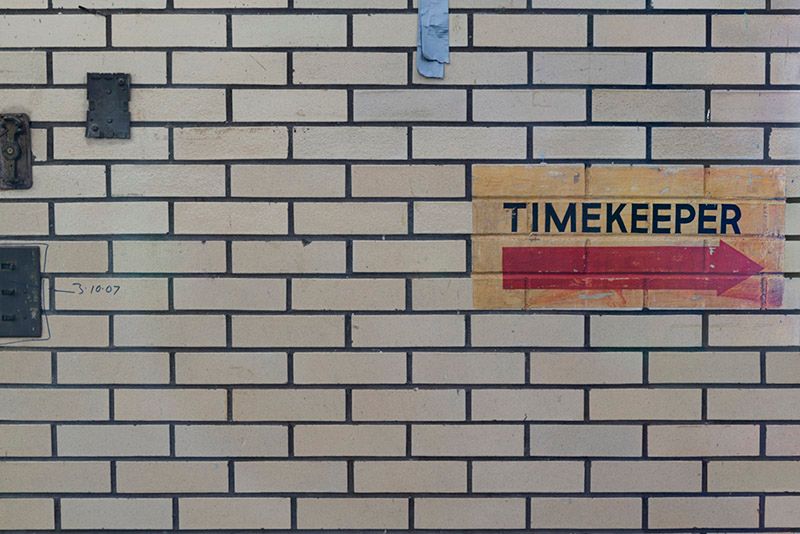
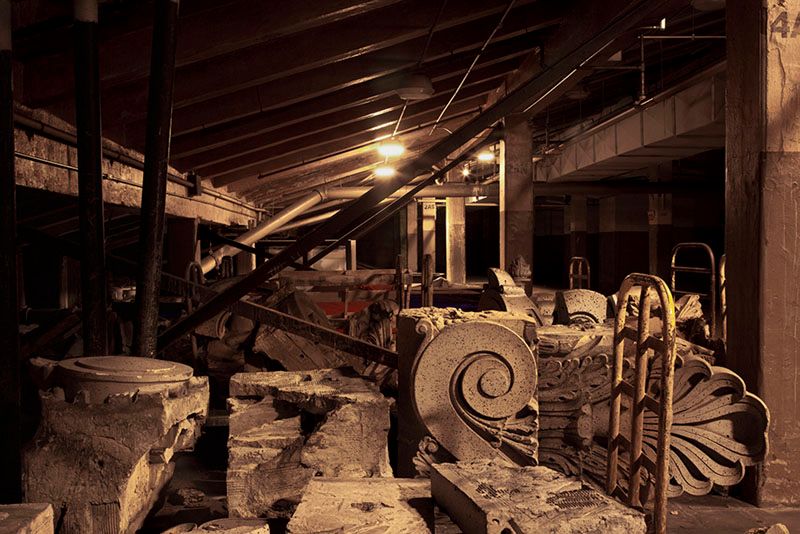
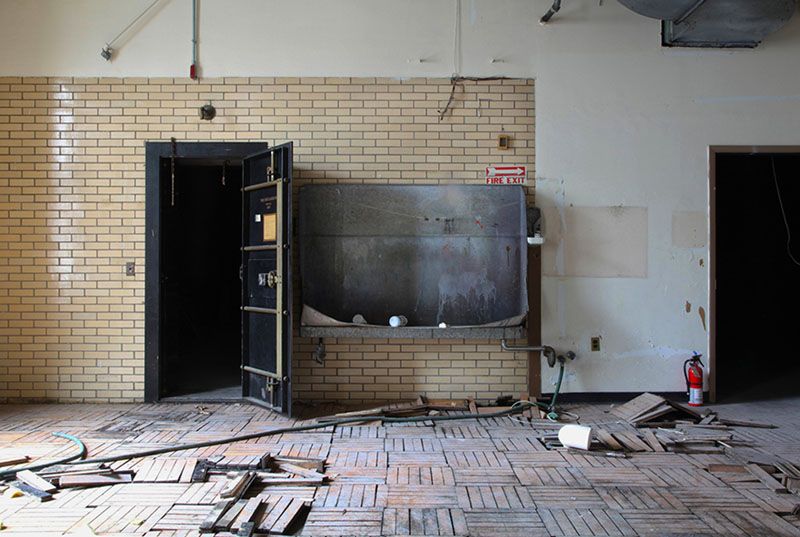
Now, in the midst of demolition and transformation, the Farley is caught in between the “fleeting windows” of two worlds: the old and the new. From mail sorting rooms to dilapidated offices and vacated bathrooms, Morton’s photographs come together to paint a picture of what once was a “self-contained company town” that included massive sorting rooms, a large dining area and offices.
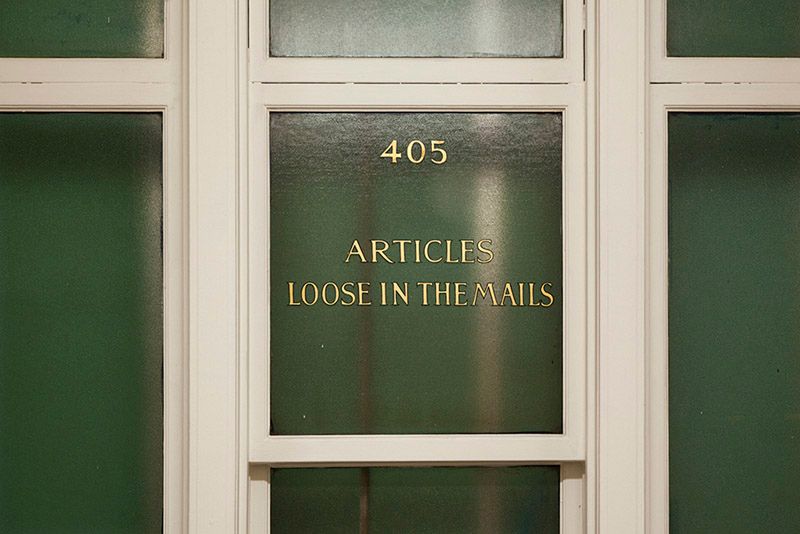
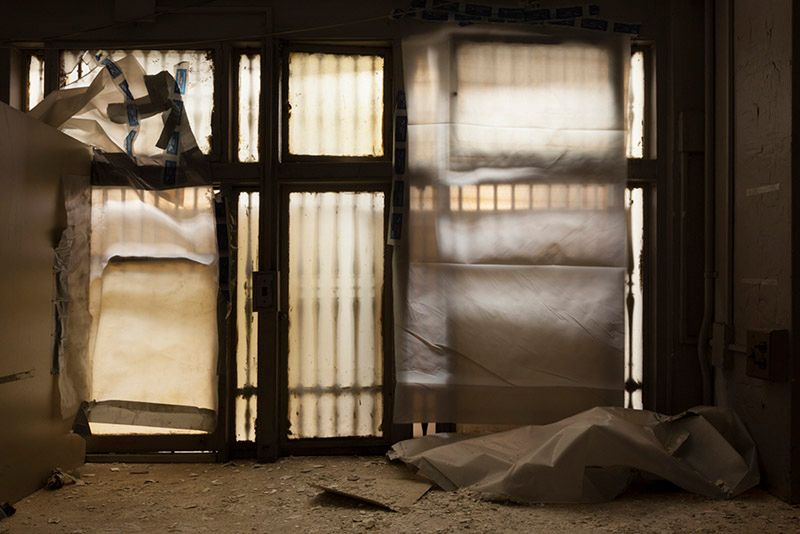
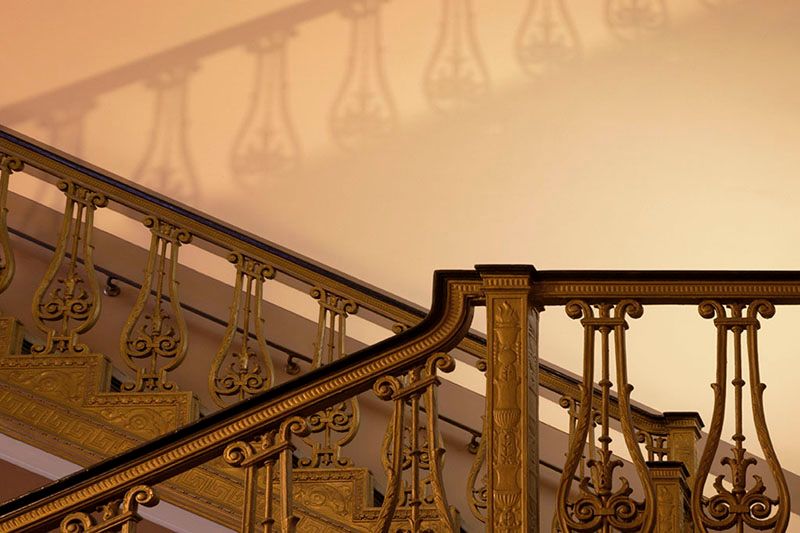
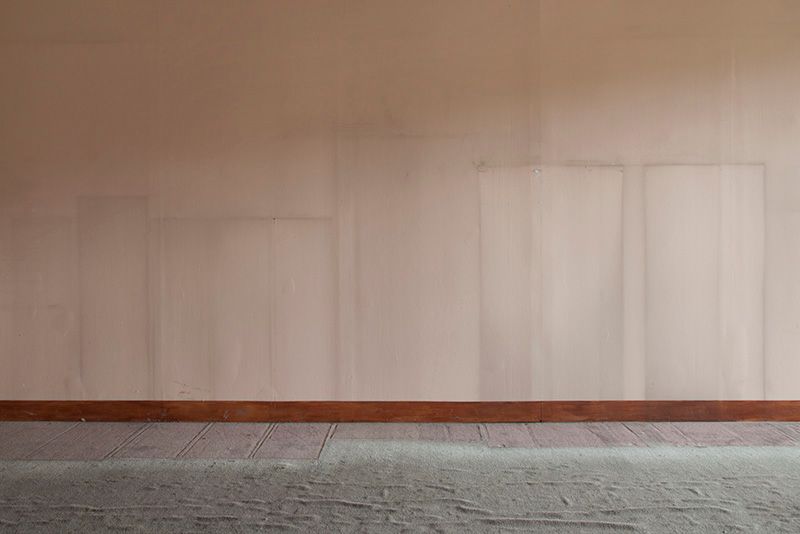
To celebrate the installation, The Architectural League and Urban Omnibus is hosting a reception and discussion on Monday, April 17th (doors open at 6:30 pm), which will be followed by a talk by Margaret Morton and a response by curator and art historian Bonnie Yochelson. This event is free and open to all. Register here.
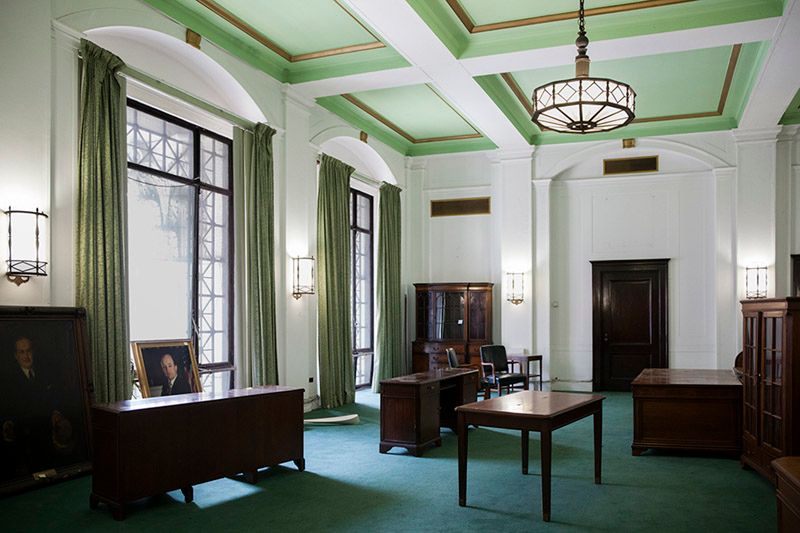
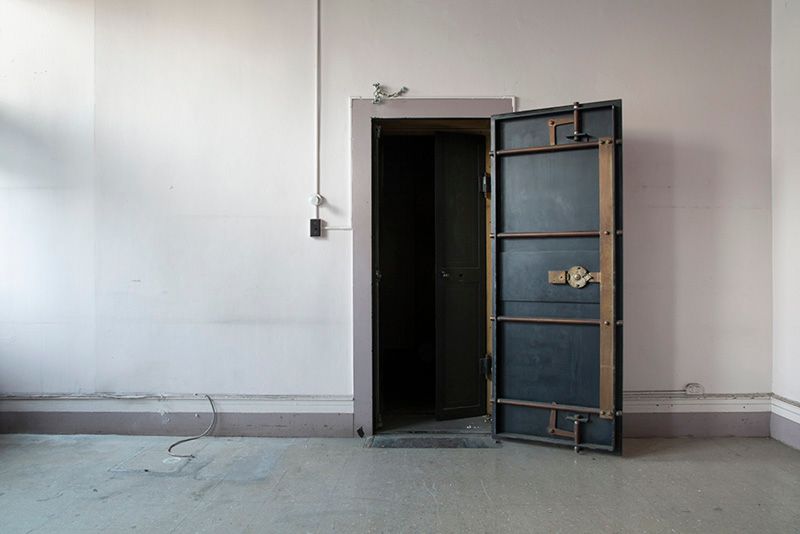
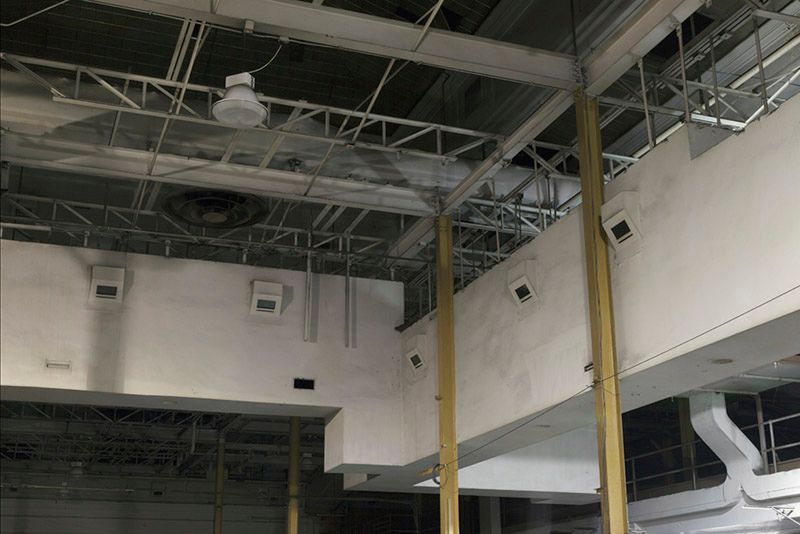
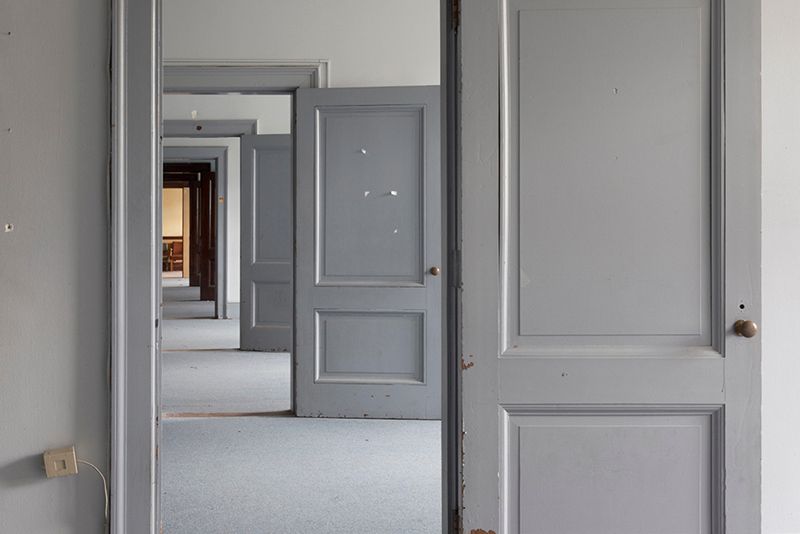
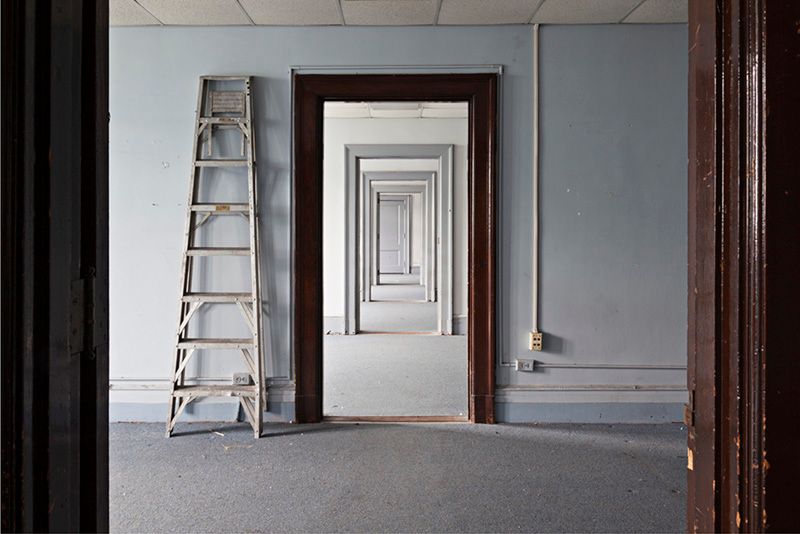
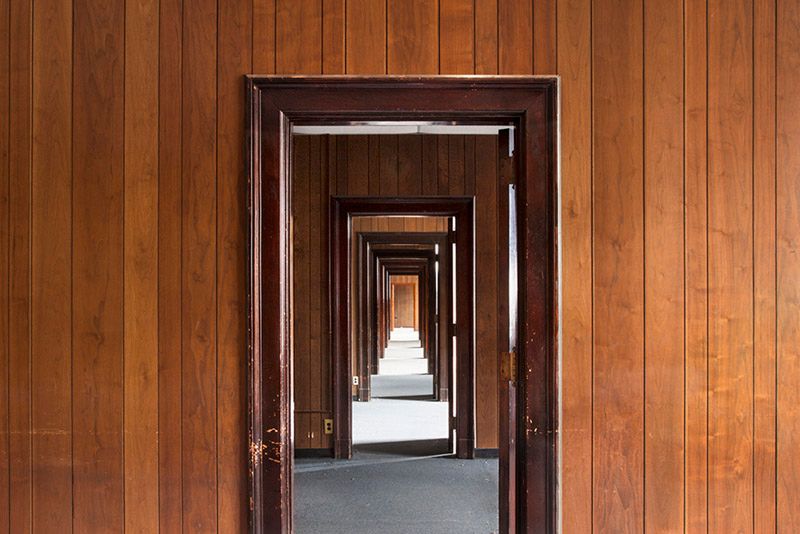
The exhibition is also open to the public on Friday afternoons, between March 17 to May 19 from 1pm–5pm, at The Architectural League of New York (594 Broadway, Suite 607, between Houston & Prince Streets).
Next, check out What Penn Station May Look like in 2020 and the Museum of Postal History in James A. Farley Post Office.

